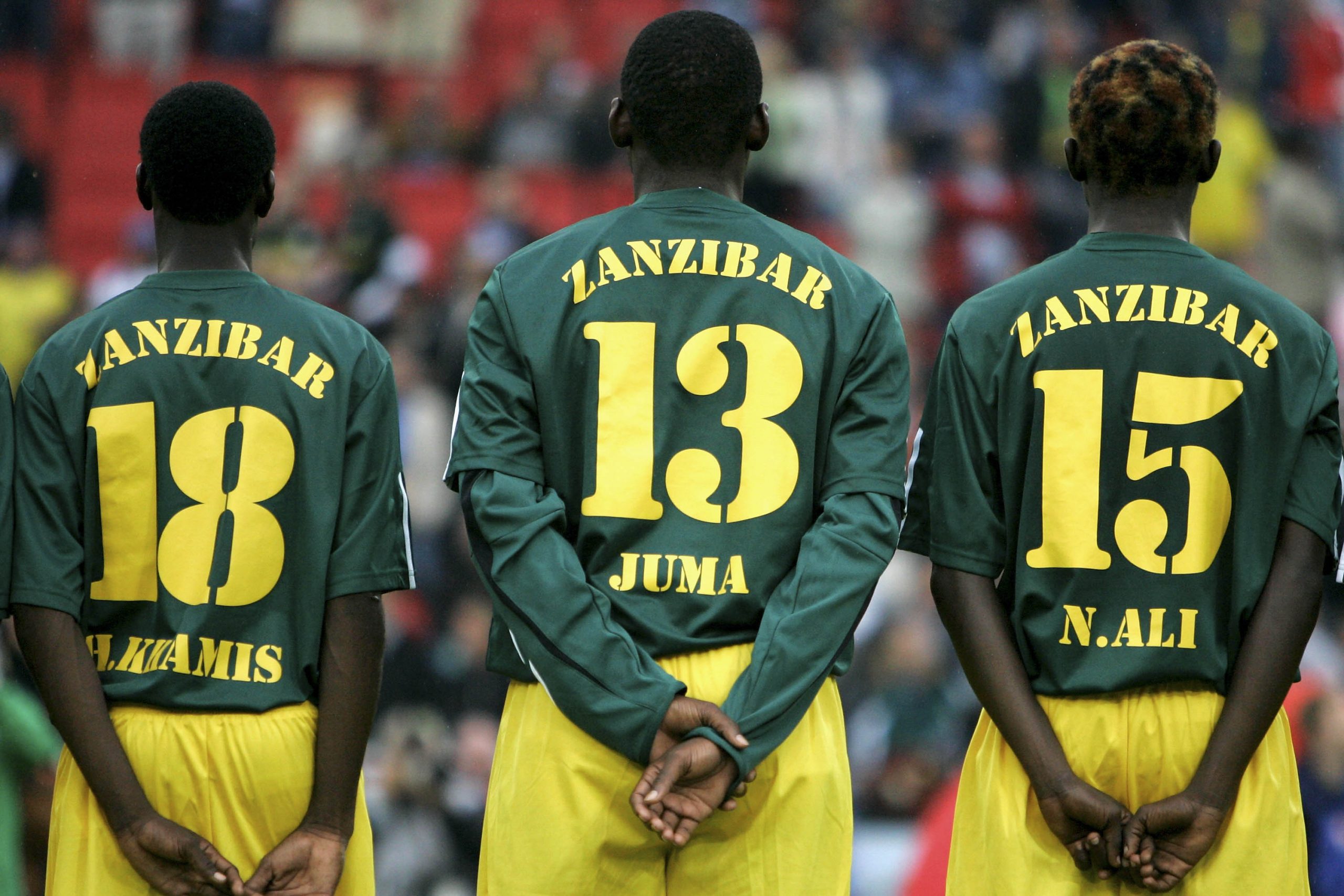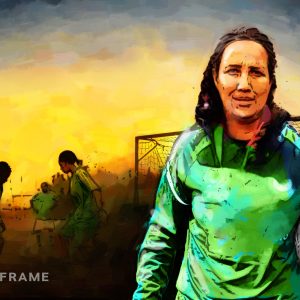Political forces obstructing Zanzibar’s CAF dreams
The islanders are said to be the victims of powerful forces in Africa’s football governing body serving their own political interests. The same case can be made for the exclusion of Western Sahara.…
Author:
3 April 2021

“Issa Hayatou gave birth to Zanzibar’s CAF [Confederation of African Football] membership dream, Ahmad Ahmad strangled it and now Patrice Motsepe has completely buried it,” said Tanzanian football consultant Michael Mwebe.
This was in reaction to CAF’s decision to amend article four of its statutes without the prerequisite 30-day notice. However, this amendment was made before Motsepe was officially elected CAF president which meant he would have had no say on the matter. CAF has now made it mandatory for any African football association wishing to join its hierarchy to be the only representative of an independent country that is a member of the United Nations. This effectively ended Zanzibar’s CAF dreams, turning the autonomous region of Tanzania into a casualty of a bigger political battle that is allegedly spearheaded by Morocco.
“CAF have basically sealed off the only loophole that allowed Zanzibar to continue pushing for the elusive membership,” said Mwebe.
According to a close source, the amendment was fronted by the Royal Moroccan Football Federation’s president, Fouzi Lekjaa, and passed by CAF’s executive committee without being subjected to any debate during the body’s elective general assembly held on 12 March in Rabat, Morocco.

The move is seen as an attempt to bury any chances of Western Sahara – a disputed territory on the coast in the Maghreb region of North and West Africa, of which 20% is controlled by the self-proclaimed Sahrawi Arab Democratic Republic and 80% by Morocco – from joining CAF ranks.
Condemned in Zanzibar as parochial and politically motivated, the passing of the amendment was hailed as a “masterstroke in sports diplomacy” in Morocco, according to the 15 March editorial of the Moroccan newspaper Assabah.
“It’s just a selfish game being played by Morocco as they know Western Sahara is already recognised by the African Union, and the only remaining avenue to block them from joining CAF is to introduce the UN member requirement,” said Suleiman Suleiman Shabaan, former club licensing manager of the Zanzibar Football Association (ZFA).
The timing couldn’t have been more apt for the North African kingdom, coming as it did when CAF was undergoing a transition with Motsepe being selected as its first-ever president from the Anglophone grouping. Motsepe is from South Africa, one of the countries that recognises Western Sahara’s independence.
The 59-year-old billionaire replaced Ahmad, the embattled Malagasy who was forced to step down from office after world football body Fifa slapped him with a five-year ban for corruption. On appeal, the Court of Arbitration for Sport reduced his ban to two years.
Motsepe’s ascension to the helm of African football leadership was a mere coronation, a culmination of intense lobbying that saw his three opponents – Ivorian Jacques Anouma, Senegalese Augustin Senghor and Mauritanian Ahmed Yahya – step down in his favour in a power deal believed to have been brokered by Lekjaa and Fifa president Gianni Infantino. A Swiss Italian, Infantino has since come under fire from international media for meddling in the polls against Fifa guidelines.

Zanzibar’s long fight
Zanzibar has managed its football with support from its semi-autonomous government, well-wishers and a few favours from the Tanzania Football Federation (TFF) for 95 years, making the ZFA one of the oldest football organisations in Africa.
In this period, it has run four division leagues, three youth leagues and the national team, the Zanzibar Heroes, who do not grace continental championships but play in the regional Council for East and Central Africa Football Associations (Cecafa) Senior Challenge Cup. Clubs from the four-islands region have competed in CAF inter-clubs since 2004 when the continent’s governing body granted Zanzibar “associate membership” status. This was a gentleman’s agreement, with no legal backing, extended to the ZFA by former CAF president Hayatou.
Despite its clear efforts to grow the game, the ZFA’s clamour for official status, which would guarantee it financial and technical support, remains a mirage. After decades of lobbying, including a failed bid to join Fifa in 2005, the ZFA was accepted as the 55th member of CAF on 17 March 2017, in a vote (51/54) taken by the general assembly in Addis Ababa, Ethiopia.
This was a proud moment, not only for the ZFA but also the TFF under former president Jamal Malinzi, who had introduced the motion. The joy, however, lasted only four months as Ahmad, freshly elected to succeed the long-serving Hayatou, single-handedly and without quoting any specific statutes reversed the decision.
Related article:
“They were admitted without properly looking into the statutes, which are crystal clear,” argued Ahmad, who told the BBC during a CAF extraordinary congress in Morocco that the governing body could not admit two different associations from one country. “The definition of a country comes from the African Union and the United Nations,” he added.
But no such requirement had existed before – not even at Fifa, whose membership comprises 211 national associations, which is 18 members more than the UN’s membership total. Some of the Fifa members that are not members of the UN include Gibraltar, Kosovo and the Faroe Islands.
Tanzania’s hand in the exclusion
According to a source who was privy to the goings-on but did not want to be named as the matter remains politically sensitive, Ahmad was only fulfilling the wishes of the Tanzanian government. “At first, the government of Tanzania, through the Ministry of Sports, approved the Zanzibar bid. However, this position changed immediately after the admission, with Jamal Malinzi being thrown under the bus for allegedly acting on his own,” said the source.
Consequently, Malinzi was arrested shortly thereafter and charged with 20 counts of embezzlement and money laundering. He was found guilty of just one offence and released after two years in detention upon paying a $220 fine.
The issue of Zanzibar gaining full CAF membership is a taboo topic discussed in hushed tones, especially in mainland Tanzania, because it coincides with the islanders’ quest for independence. The late president John Pombe Magufuli’s regime abhorred free speech.

“Though not officially, there is a strong belief – and people talk about it secretly – that the government is opposed to Zanzibar joining CAF as a full member. And it’s not only in football. An attempt for Zanzibar to join the IOC [International Olympic Committee] was equally thwarted by the government and the issue has never been raised again,” said Shabaan. “Any pursuit for such recognition is viewed as a direct affront to the union-making Tanzania and could trigger increased demand for the forbidden independence for Zanzibar.”
Signed in 1964 between the first president of Zanzibar, Abeid Karume, and Tanganyika’s Julius Nyerere, the union pact saw Zanzibar merge with Tanganyika to form the United Republic of Tanzania, with Nyerere as president and Karume his deputy.
Related article:
“The usual fear [of an independent Zanzibar] cited [by Tanzania] is security. Zanzibar’s access to the sea makes the mainland vulnerable to foreign aggressors,” said Thabit Jacob, a research fellow in the political economy of development at Roskilde University in Denmark.
Even as, more than ever, the future looks bleak for the ZFA, Shabaan can still spot a silver lining. That the general assembly did not reverse its decision, as required by law, gives him hope that someday Zanzibar will get justice. “The authority to admit or expel a member rests with the general assembly, and to date it has never sat to revoke the ZFA’s legitimate membership. The ZFA is simply an oppressed member of CAF.”
In the meantime, Zanzibar will forge ahead with its football programmes despite inadequate support and cling on to the ZFA’s associate member status, its only source of international recognition for now, as it ponders the future.
“Perhaps, the biggest issue now for Zanzibar is whether they can keep holding that special membership, which allows them to participate in CAF inter-club competitions,” said Mwebe.
CAF had not yet responded to questions posed to them on the matter at the time of publication.
Correction, 6 April 2021: This article has been amended to clarify that CAF took its decision on Zanzibar in the general assembly before Patrice Motsepe’s official selection as president.


